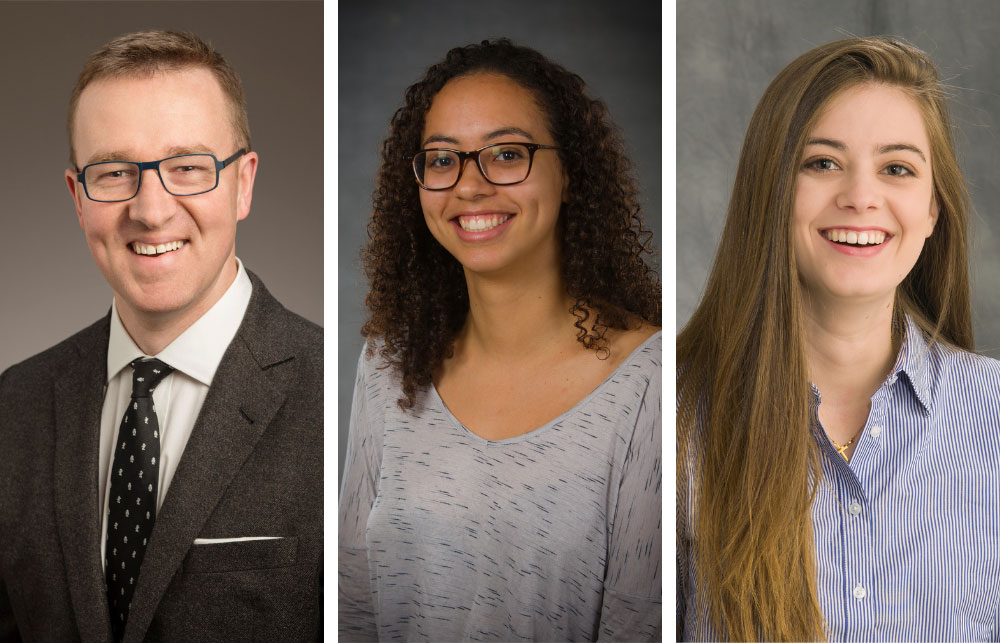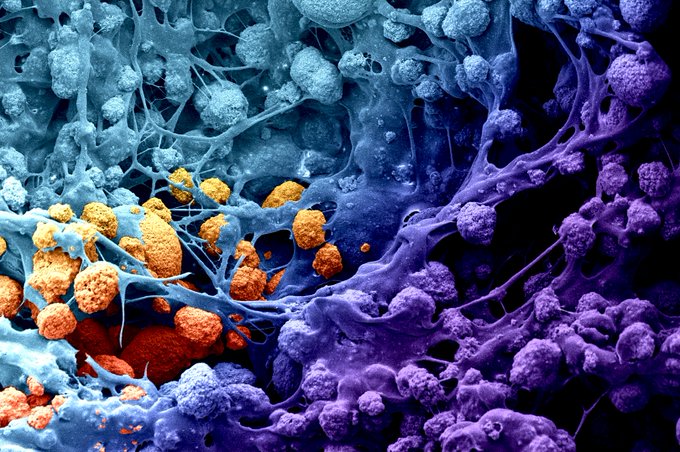A microscopic image of the innovative biomaterial being developed from 3D-printed mesh combined with a collagen-based scaffold to regenerate large portions of the skull. Image credit: Marley Dewey, a former member of the Harley lab.
Urbana, Ill. – A new research project led by the University of Illinois Urbana-Champaign aims to develop biomaterials that are strong, malleable, and support stem cell growth to transform skull reconstruction surgeries with a $2.4 million grant over five years from the National Institute of Dental and Craniofacial Research, a branch of the U.S. National Institutes of Health.
“Craniofacial bone reconstruction is difficult and time-intensive—relying on bone grafts and ill-fitting, non-regenerative plastic implants; the result is often poor healing and high complication rates,” said Brendan Harley, a chemical and biomolecular engineering professor at UIUC. “Our goal is to improve patient recovery by accelerating bone regeneration.”
Led by Harley, the project’s interdisciplinary team includes University of California, Los Angeles professor Justine Lee, an expert in bone biology and pre-clinical testing, and Dimension Inx co-founders Adam Jakus and Ramille Shah, also a professor at the University of Illinois Chicago, who offer expertise in 3D printing.
Together, they will create an innovative off-the-shelf biomaterial that can be quickly and easily shaped to fit complex skull injuries—which can result from trauma, birth abnormalities, and surgical treatments for strokes and cancer.
“The porosity required to support cell growth in many biomaterials renders them mechanically weak,” Harley said. “Further, many require stem cells to propagate outside the body, which is time-consuming, costly, and impractical.”
The new composite biomaterial being developed by this team is fabricated from 3D-printed mesh integrated into a porous scaffold made of mineralized collagen (makes up connective tissue) infused with stem cells that can propagate inside the body to promote bone regeneration.
This new grant is made possible by past support, including previous funding from the NICDR and graduate research fellowships from the National Science Foundation that have been awarded to most of the project’s graduate students over the years.

A new project at the University of Illinois that aims to develop biomaterials for skull reconstruction surgeries will be led by chemical and biomolecular professor Brendan Harley and graduate students Aleczandria (Alec) Tiffany and Vasiliki (Aliki) Kolliopoulos.
– Written by the Department of Chemical and Biomolecular Engineering

